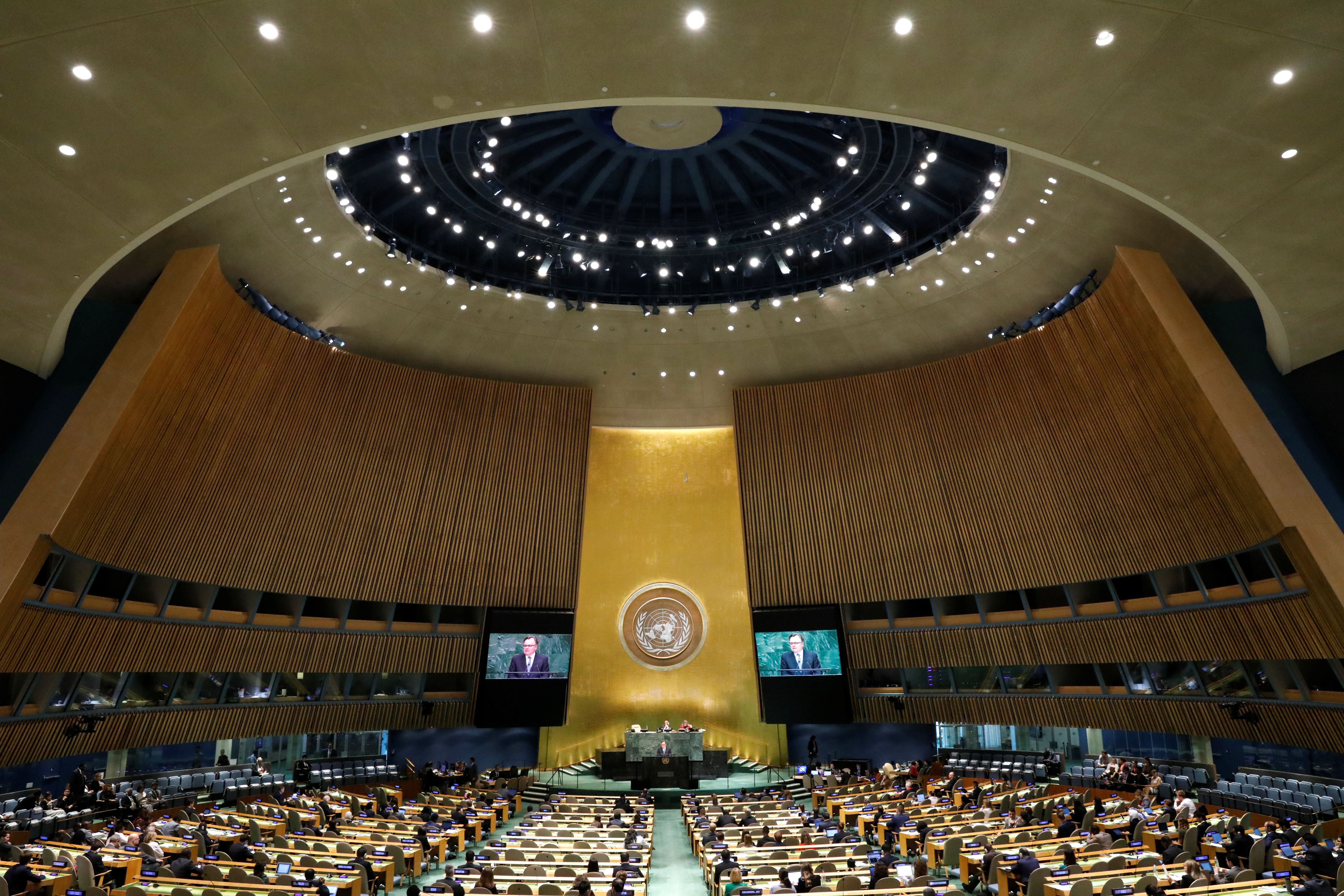September 23, 2019
The speeches may be boring, but the annual UN General Assembly (UNGA) allows world leaders the chance, if they want it, to meet one-on-one to talk about sensitive topics. Crossing paths in UN corridors allows for freer conversation than formal bilateral summits with all their protocols and political pitfalls.
Unfortunately, as the 74th installment of the UNGA gets under way, we have to note three potential encounters that aren't happening this week, and one meeting that probably shouldn't. Read the full list here.
1. Iran's President Hassan Rouhani and his US counterpart Donald Trump. This was always a long shot, but it become a stratospheric reach after Iran evidently blew up Saudi Arabia's main oil facilities last week. Trump, who had talked up the potential for a chat multiple times, quickly changed his tune. That's too bad, because regional tensions, and the threat of a US-Iran war, won't cool themselves.
2. South Korea and Japan. These two East Asian powers are locked in a growing trade spat rooted in unresolved grievances about Japanese actions during World War II. And yet Japanese Prime Minister Shinzo Abe and South Korean President Moon Jae-in are not, in fact, expected to meet this week. These are two of the world's largest economies, and they're now locked in a fight with losers on both sides.
3. Pakistani Prime Minister Imran Khan and India's Narendra Modi. After Modi abruptly stripped Kashmir of the autonomy it has enjoyed for 70 years just last month, Khan compared him to Hitler. It's never encouraging when these two nuclear-armed neighbors talk at, rather than with, one another.
The meeting that is happening but maybe shouldn't: Trump will meet with Ukraine's President Volodymyr Zelensky, whom he has allegedly (and perhaps impeachably) pressured to probe the Ukrainian business dealings of the son of US presidential hopeful Joe Biden.
More For You
Bad Bunny during the Super Bowl LX halftime show press conference at Moscone Center.
Kirby Lee-Imagn Images
100 million: The number of people expected to watch the Super Bowl halftime performance with Bad Bunny, the Puerto Rican superstar and newly minted Album of the Year winner at the Grammys.
Most Popular
Think you know what's going on around the world? Here's your chance to prove it.
- YouTube
An imminent US airstrike on iran is not only possible, it's probable.
Americans are moving less — and renting more. Cooling migration and rising vacancy rates, especially across the Sunbelt, have flattened rent growth and given renters new leverage. For many lower-income households, that relief is beginning to show up in discretionary spending. Explore what's changing in US housing by subscribing to Bank of America Institute.
© 2025 GZERO Media. All Rights Reserved | A Eurasia Group media company.
